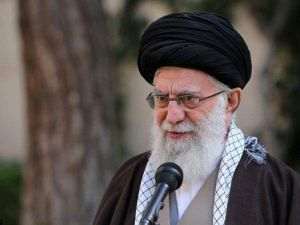There are times in international politics when leaders' speeches seem more intent on rewriting perception than reality. This is the case with Chinese President Xi Jinping's statements at the Shanghai Cooperation Organization (SCO) Plus summit, in which he launched the Global Governance Initiative (GGI), an initiative based on five principles: sovereign equality, respect for international law, multilateralism, a people-centered approach, and a focus on concrete actions.
The principles enunciated by the Chinese leader are not just a set of ideals projected outwards, but reflect a way of governance that China already applies within its own political and social system, adapted to its cultural and institutional specificities. They are not simple declarations of intent, but principles validated internally, but reinterpreted in a Chinese key, intended to support both the stability of the state and its accelerated development.
However, the essential question is whether these principles, applied in the Chinese manner, can be transposed in the same way into global governance. The answer is nuanced: on the one hand, the values it invokes are universally attractive: equality, respect for rules, cooperation, people's interests and practical efficiency. On the other hand, the way China implements them implies strict centralization, uniformity of decisions and subordination to the supreme authority of the state.
At a global level, where democratic regimes, liberal systems, authoritarian states and divergent geopolitical interests coexist, such an approach would encounter major resistance. The main impediments are the lack of a single center of power accepted by all, the differences in vision on fundamental rights and freedoms, but also the suspicion that a model directly inspired by Chinese practice would favor the consolidation of influence blocs rather than genuine global governance. In addition, the "people-centered" principle, although validated in China through poverty reduction and modernization, could be perceived differently in states where individual freedom and democratic participation have priority, which would generate friction.
• "The Chinese Experiment” in Global Governance
The first principle, that of sovereign equality, finds its correspondence within China through the unity and national cohesion imposed by the central authority. All regions and communities are subject to the same rules and the same discipline - that imposed by the Communist Party of China, which, even if it does not resemble international pluralism, validates the idea of equal treatment within a vast and diverse state.
The second principle, respect for the rule of law, is visible through the uniform and firm application of Chinese legislation. Just as Beijing demands the elimination of double standards externally, internally it applies a strict and coherent legal regime that leaves no room for ambiguity and confirms this principle in the national logic. However, this principle does not exactly apply the principles of international law to which Xi Jinping refers.
Multilateralism, the third principle, is promoted by China abroad through alliances and support for international organizations, but internally it manifests itself in the form of consulting economic and social structures, with the mention that these are permanently under the coordination of the central authority. Thus, the principle is recognized, but adapted to the Chinese political framework, where unity takes precedence over political diversity.
The fourth principle, the people-centered approach, has a strong validation in China through the results obtained, if we consider the official data of the government in Beijing and the information presented in the press from the great Asian state. According to them, the Chinese communist regime has lifted hundreds of millions of people out of poverty, rapidly modernized the infrastructure and improved the quality of life. However, in this vision, the emphasis is more on collective well-being and social stability than on individual rights, which reflects a different interpretation of the idea of "people-centered".
Finally, the principle of concrete actions and tangible results is clearly confirmed, with the Beijing government demonstrating over the past 20 years an extraordinary capacity to implement development strategies, through five-year plans, infrastructure projects and technological investments, which shows that the rhetoric of visible results is a real pillar of domestic governance.
Thus, the five principles proposed by Xi Jinping are not only instruments of global diplomacy, but also the expression of a governance model already practiced within China. They are validated not by a faithful copy of international norms, but by an adaptation of their own, which puts stability, development and the central role of the state at the forefront, but their transposition on a global scale would require major compromises and a difficult harmonization between profoundly different political systems.
• Same terms, different meanings between the West and China
The problem is that when we carefully read the five points exposed by the Chinese president at the Shanghai Cooperation Organization Plus summit, between Chinese theory and implementation, on the one hand, and Western reality, on the other, a gap wide enough to be difficult to fill opens up.
For example, referring to the first principle, Xi Jinping said: "We should uphold that all countries, regardless of size, power and wealth, are equal participants, decision-makers and beneficiaries in global governance.” It is hard not to admire the nobility of the idea. But it is even harder not to wonder how this theoretical equality is reconciled with the reality of economic partnerships in which small states find themselves caught in a web of debt, and large ones set the rules of the game. Talking about "equal participants” when, in practice, the balance of power is regulated by conditional investments and diplomatic pressure is a bit like organizing a game of chess in which one player has eight queens and the other only two pawns.
On the second principle in which the Chinese leader spoke about respecting the rules of international law, his statements sound like a paragraph taken from a UN manual. "The purposes and principles of the UN Charter and other universally recognized fundamental norms of international relations must be respected comprehensively, fully and in their entirety,” declared Xi Jinping.
Who could dispute such a statement? However, in reality, the appeal to international law is often selective, applied with double standards. Take the case of the Russian Federation's aggression in Ukraine. China upholds its geopolitical interests with impeccable consistency, but it also demonstrates its freedom to challenge international decisions when they do not suit it.
In fact, the Soviet Union also called for respect for international law in the 1970s, but only to the extent that it legitimized the post-war territorial status quo. The Americans, in turn, called for a "rules-based order,” but the rules were often made in Washington. Now Xi Jinping is merely reviving an old tradition: asking everyone to respect the law, but interpreting it according to their own interests. In the third principle, Xi insists: "We should support the vision of global governance that includes extensive consultations and joint contributions for the common benefit, strengthen solidarity and coordination, and oppose unilateralism.” Multilateralism here becomes synonymous with a more balanced global order, in which no one decides alone. But history offers us a warning: even the Brezhnev doctrine, which proclaimed the "limited sovereignty” of socialist states and spoke of multilateral-developed socialism, was shrouded in the language of solidarity and cooperation. In reality, it was a formula to justify Moscow's interventions in its own sphere of influence. The multilateralism now proclaimed by the Chinese president risks being just another form of disguised unilateralism, in which "extended consultations” are obviously performed to the tune dictated by Beijing.
• Global governance, with coordinated actions by SCO members?
The fourth principle of the Global Governance Initiative enunciated by Xi Jinping sounds even more appealing: "We should reform and improve the global governance system to ensure that the people of every nation are the actors and beneficiaries of global governance.”
Well said, who could be against it? However, the invocation of "the people” in a global governance framework has something almost literary, because in practice there are no mechanisms through which the average citizen can become an active participant in geopolitical decisions. The Americans used the same kind of rhetoric when they justified military interventions under the slogan of "defending freedom”, and the result was, often, a much more ambiguous reality on the ground. In the case of the IGG, "people” risks becoming a rhetorical pretext, not a real priority.
Finally, the fifth point in Xi Jinping's speech on the launch of the Global Governance Initiative is intended to be the pragmatic one: "We should adopt a systematic and holistic approach, coordinate global actions, fully mobilize diverse resources and pursue more visible results”.
But here too, there are more questions than answers. Who coordinates and who mobilizes resources? From what the Chinese president says - "we should coordinate global actions and fully mobilize diverse resources” - it appears that this would be about China, the Russian Federation, India and the other members of the Shanghai Cooperation Organization. Moreover, the representatives of the same states will decide what "results are visible" and what is not important for global governance.
We note that this principle does not has nothing to do with the current way of doing things in international politics. The US has used exactly the same formula in recent decades: promises of "concrete actions” for global stability. The results have often been long and costly wars. If history teaches us anything, it is that in geopolitics, concrete promises quickly evaporate when they meet national interests.
Taken as a whole, the five points of the Global Governance Initiative seem to be more than a simple vision: they are an attempt to rewrite the rules of the global game with impeccable rhetoric but questionable intentions. Sovereign equality, international law, multilateralism, people, concrete measures - all are concepts that work well in speeches and are almost impossible to challenge. But put in the context of China's concrete policies, they resemble parallel mirrors: they reflect the image of a more just order, but behind them hide an architecture in which the first beneficiary remains the initiator. From Pax Americana to the Soviet dream of a "socialist community” to the current Chinese vision of a "common future for humanity,” history shows that great powers share the same temptation: to dress ambition in the language of altruism.
In conclusion, the Global Governance Initiative is born under the sign of paradox. On the one hand, it has all the ingredients of a grand plan: global vision, generous promises, unanimously accepted principles. On the other hand, it is impossible not to see behind these declarations a soft power strategy, an exercise in legitimacy, and perhaps a prelude to an international order redrawn according to rules that, no matter how egalitarian they are declared, will be written with the thick pencil of Chinese national interests.

















































